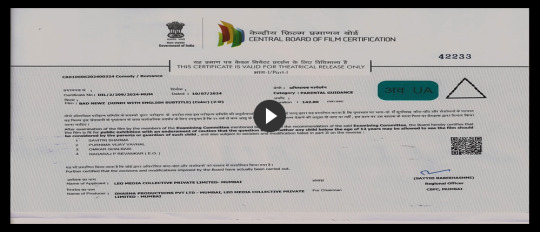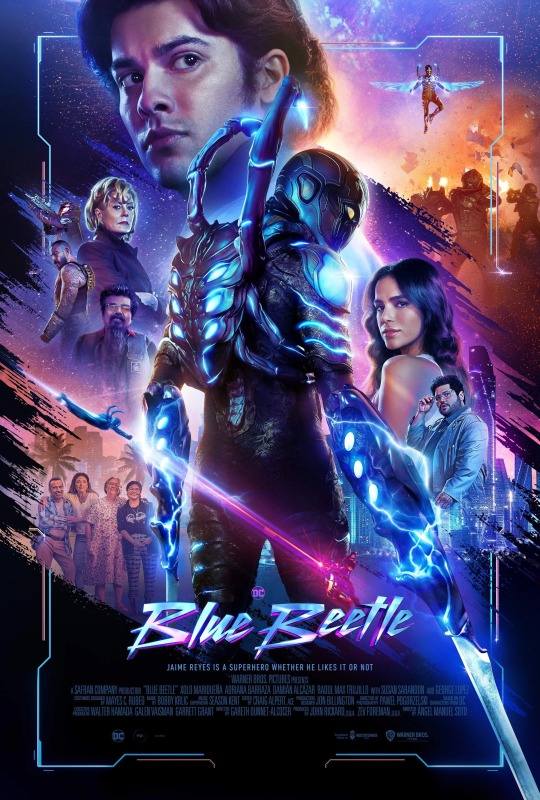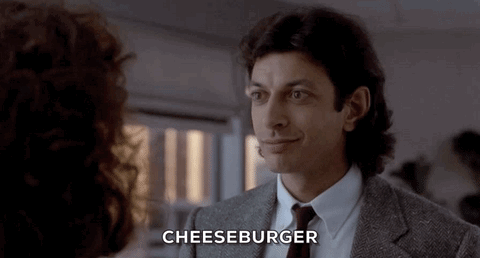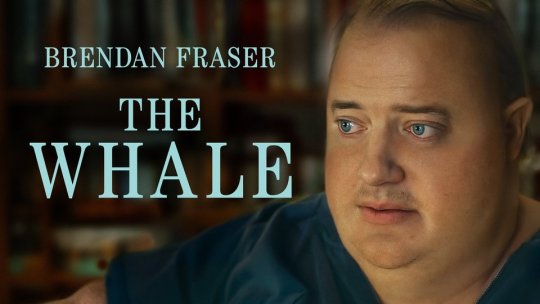#Filmreview
Explore tagged Tumblr posts
Text

HANNIBAL
I find it funny that I haven't gotten down to watch the series earlier. The picture I used for the post, the most horrifyingly magnificent image from the series, is something that's been hanging on my wall for years, whilst I had no idea it was from the series, so you can imagine my pleasant surprise, when I saw it on the screen.
But to the series.
Of course I had to go down the rabbit hole of hannibal fandom on tumblr and though it doesn't surprise me that people are still rooting for season 4, I myself cannot identify with the sentiment.
Why? Because for once I'm not yearning for more. The story, for once, and for once in the longest while, feels complete. The story said everything it had to say, not less, not more, just enough. Usually, when I finish something that has such hold on my heart, I tend to go through everything concerning it, from youtube, tumblr to pinterest and fanfictions. I need to re-immerse myself in that particular story universe, exhaust it and enjoy it more. But for some reason, in case of Hannibal, I had no such inclination, even despite loving every second of the story.
I was trying to discern the reasons for that, since it's so unusual in my case. I think it's because it feels so intimate, as if I shouldn't interfere, only feel happy I was able to observe and enjoy it from afar. Maybe, the closer Hannibal and Will got, the bigger the distance between them and the viewer got. Gosh, I'll never cease to admire the intimacy the writers managed to create between the characters, it's such a rare sight really.
But back to the premise of this post - why there never should be a fourth season? The series have its charm precisely because it ended the way it did. If there was season four, things would have to be said explicitely, would have to be elaborated on, which would straight up collide with the whole motive of the series - the motive of unsaid and untangible.
We never get to feel Will's emotions, the minds of the killers, Hannibal's apetite, none of it. Nothing is said directly, only in a roundabout, concealed fashion of metaphors and similes. The magic would be completely lost if anything ever crossed the threshold of explicit.
And the creators made it abundantly clear in the final episode. It all came together: the "see?", the beauty, both of them, their relationship to themselves and also one another. It was the ultimate ending, phenomenally tied together. We know they survived and we shouldn't know more than that. Those three series have been a foreplay of intimacy between those two, can you imagine how intimate the fourth one would have to be? It would straight up feel like imposing, like breaking into someone's home to watch them change their dirty underwear.
The story, the chracters we knew, the era they went through, ended there and everything beyond is a story for another time, story unseen by anyone, their very own story.
I pray there will never ever be season four, let the sleeping beasts lie.
21 notes
·
View notes
Text

Queen Rock Montreal ⭐️⭐️⭐️⭐️⭐️
#film review#movie review#film reviews#film#movie#films#movie reviews#movies#filmreview#Queen Rock Montreal#brian may#roger taylor#john deacon#freddie mercury#queen band
11 notes
·
View notes
Text
Our final EVIL*ASTERISK podcast of 2024 features Ghostwatch (1992) – a groundbreaking BBC horror mockumentary that was presented as a “live” broadcast 👻 Created and written by Stephen Volk; directed by Lesley Manning.
Hope you enjoy listening … and best wishes for a frightfully fun new year 🎉
In case you missed it, transcripts for previous episodes (You Are Not My Mother | Stopmotion) are available on Medium: https://bit.ly/4i9GGg1
Luis and I review obscure, odd, and wholly original horror films that might not be getting the attention they deserve – is available on Spotify, YouTube, Apple, Amazon, Audible, SoundCloud, and more! See our LinkTree for details: https://linktr.ee/evilasterisk
#filmcritic#filmcritics#filmreview#filmreviews#haunted#horror#horrormovie#horrormovies#indie#indiefilm#happynewyear#newyear#happyholidays#holidayseason#podcast#moviereview#movietime#whattowatch#indiemovies#indiefilms#moviereviews#podcasts#scary#spooky#winter#wintervibes#ghostwatch#bbc#mockumentary#waroftheworlds
2 notes
·
View notes
Text
youtube
Our monthly bonus chat is live! This special episode focuses on a simple question - Why can't Hollywood make a good climate change movie? This was prompted by Christina's rewatch of The Day After Tomorrow some time ago, and as a scientist and solarpunk, she was both horrified and offended.
Join us as she gets it out of her system, and we deep-dive into this example of the representation of climate catastrophe on the silver screen!
PS: This topic was voted on by our Patreon supporters, who also received exclusive early access to this and other bonus materials. Just FYI ;)
#solarpunkpresentspodcast#solarpunk#BonusEpisode#podcast#TheDayAfterTomorrow#ClimateChange#ClimateChangeInMovies#ClimateCatastrophe#CatastropheFilms#Movies#Films#DisasterMovies#DisasterPorn#Catastrophe#Disaster#SuddenIceAge#Glaciation#Spectacle#Spectacular#FilmReview#moviereview#Youtube
7 notes
·
View notes
Text

#movies.com#movie review#Movies#FilmLovers#MovieNight#Cinematography#FilmCommunity#MovieMagic#Blockbuster#NowShowing#MustWatch#CinemaAddict#IndieFilm#FilmBuff#DirectorSpotlight#DVDReleases#ThrowbackMovies#FilmReview#MovieTrivia#FilmFestivals#ActionMovies#ComedyFilms
3 notes
·
View notes
Text

Hey! We’re Kevin and Kayla aka Digital Kaiju Studios, a digital studio making shows for nerds. We’ve just launched our second podcast, Gorilla-Whale, a Godzilla Watch-Along Podcast. Join our journey as die-hard Godzilla fan Kevin shepherds Kayla through every. Single. Godzilla. Movie. Ever. And maybe a few other giant monster movies while we’re at it. Gorilla Whale will air bi-weekly on Fridays.
SPOTIFY: https://open.spotify.com/show/4MzwKrx8WUSoHVfl3ecdWw
YOUTUBE: https://youtu.be/osFtr0CW714
KO-FI: https://ko-fi.com/digitalkaijustudios
Gorilla Whale is a production of Digital Kaiju Studios. It is hosted and produced by Kevin Carpenter and Kayla Knutson. We post episodes every other Friday. Available anywhere you listen to podcasts. Art by Ashlee Hart.
#kayla: wait there's HOW MANY godzilla movies?!?!#kevin: :)))#godzilla#gojira#film#filmpodcast#moviepodcast#movies#watchalong#filmreview#cinema#indiepodcast#podcast
3 notes
·
View notes
Text

I avoid superhero movies, but I watched Blue Beetle.
by Maria Isabel Nieves Bosch
"I remember going to the movies when I was in high school and having fun with friends watching movies, like The Avengers (2012) and Thor (2011). My friend’s grandmother gave her a bag full of change for her to pay her ticket, and we all had to sit and count dimes, nickels, and pennies to reach $7, the cost for a movie in San Juan, Puerto Rico. After that, we tried to sneak in food and relish after succeeding in this thrilling and rebellious endeavor. Years later, I watched many superhero movies after high school, and my experience became less fun with each movie as I started to notice similar cocky characters, generic villains, and identical plotlines."
9 notes
·
View notes
Text
Episode 379: Christine (1983)
Movie Theater Time Machine podcast begins Stephen King month with a review of "Christine". For more episodes, visit our website at movietheatertimemachine.com
#MTTimeMachine#moviereview#filmreview#podernfamily#podbean#podcast#movie#film#movie review#review#podcast review#stephen king#stephen king movies#christine 1983#horror#horror movies#horror films#80s horror#80s movies#80s films#1980s movies#80s nostalgia#eighties#80s#1980s film#plymouth fury
2 notes
·
View notes
Text
The Fly (1986) - Review

Be afraid, be very afraid...
I have never written a film review in my life - or at least if I have, it apparently wasn’t worthy enough of being remembered - so keep that in mind while reading this. I’d also like to make a quick mention of the fact that I’m not entirely sure how to write a film review, so please excuse me if this is the biggest load of shit you’ve ever read. Anyways...
(Do I need to put a spoiler warning for a movie that came out nearly 40 years ago?)
I watched David Cronenberg’s The Fly about a week ago, and since then I have not been able to stop thinking about it. This film has absorbed my brain in all of its disgusting, melty, emotional and beautiful glory, and I’m not complaining, and I don’t think I ever will complain.
I’m a big fan of Jeff Goldblum (who isn’t, really?), and I can say that I agree with the people when they say that The Fly is easily his most iconic, influential, and outstanding role. I knew right from the beginning that Seth Brundle was going to be a character that I absolutely adored, which only made his utterly unfortunate outcome all the more difficult and emotional for me to sit through. I found that Seth’s kind nature and playful personality makes it extremely easy for the audience to fall in love with him particularly quickly, and watching him as he’s struggling to stay himself becomes extraordinarily heartbreaking the more the film continues on.
I’m an empath, and I find that it is easy for me to sympathise with characters no matter who they are, and this film took that feeling to the next level. There was one particular scene that stood out to me the most, and it’s when Veronica visits Seth after 4 weeks of not seeing him, only to find that something has gone horribly wrong. He is becoming a human fly. He sits her down and he explains to her what has happened before he momentarily reaches up to scratch his ear, just to then discover that it has fallen off into the palm of his hand.
“My ear,” Seth says. You can hear the fear in his voice, and your heart shatters into a million tiny little pieces, only to be stomped on, vacuumed up and thrown in the garbage when he follows it up by crying; “I’m scared, I’m so scared,”.
This film is a tear jerker in disguise as a horror flick.
The Fly made me weep, bawl, sob so hard I ended up giving myself a headache. And it wasn’t because I was scared or disturbed, (although I will be discussing how impressively horrifying the special effects makeup in this film is in just a moment), it was because I felt so sorry for everybody. Seth, Veronica, even Stathis towards the end there. Seth and Veronica’s love story has to be the most tragic of them all. Romeo and Juliet had it easy compared to these two. Veronica having to watch the man she fell in love with turn into a puss ridden, vomiting, limping, rotting insect while being secretly impregnated with his half human/half fly baby was devastating, and admittedly at times I felt worse for her than I did for Seth. And while Stathis was a perverted creep for a majority of the film, watching him get his hand and foot melted off by Seth’s - or should I say BrundleFly’s - acidic vomit for trying to save Veronica was yet another tough watch.
I could list on and on the moments in this film that saddened me, but the one that I think affected me the most was right at the very end. Seth/BrundleFly comes crawling painfully out of his Telepod, merged with part human, part fly, and part machine. He stops in front of Veronica and reaches up with one gangly, deformed hand and aims the gun she possesses to his head, begging for her to kill him. In that moment, you really stop to think about everything they went through together, and how their lives changed dramatically, even if it wasn’t for the better. It’s harrowing to watch, really. Veronica hesitating to kill Seth/BrundleFly because deep down inside she still loves him, and Seth pleading for death, a release from the monster he had become.
Anyways, to break away from a topic that doesn’t revolve around me sobbing violently; I’d like to move onto the special effects makeup.
Impressive doesn’t even begin to describe how incredibly done the makeup in this film is. Seth goes through a lot of different stages the more he starts to become BrundleFly, and each stage is more disturbing than the last. He’s pimply at first, pale with dark rings under his eyes, and unusually sweaty. It’s only when Veronica visits him after 4 weeks that you realise things have taken a turn for the worst. His skin has started decaying and his hair has begun to fall out. He’s still sweaty, and he’s starting to rely on canes to help him stand up straight. These two beginning stages are, in my opinion, the least disturbing of them all. It’s only when later on in the film, he demonstrates to Veronica how he’s learned how to climb walls and digest his food like a real fly now that his teeth no longer work. That’s when you start to get uneasy. His skin is rotting away, and he’s starting to become bloated, his teeth are beginning to fall out and he has begun losing more and more hair. The only thing that seemed odd to me was how easily he had welcomed it into his life. He seemed almost excited to show Veronica the way he eats and the way he can stick to the ceiling without falling down. I assume it’s because in his 50% human/50% fly mind, he finds it to be normal behaviour, and part of him still wants Veronica to write her book about his world-changing invention and the newly found dangers of it.
His near final form is erratic, and he is becoming more fly than human by the day. His eyes have grown black and he can no longer fit into his clothes. Even though his exterior is disturbing, his personality is the same, and he still somehow finds a way to joke around about his “Brundle Museum”, a place behind his bathroom mirror where he keeps the parts from his body that have fallen off, including his ear, his nails, and his teeth. The behind the scenes photos of Jeff being put into the makeup in this scene reveals that he was in the makeup chair for 5 straight hours. Mad respect.
The final transformation. The pièce de résistance of the film, aka, one of the most disturbing things I think I may have ever seen (yeah, I lied earlier about not being disturbed. How could you not be disturbed watching this film?). I admittedly wasn’t expecting BrundleFly to practically explode out of the shell of Seth, but hey, it was undeniably a very impressive effect. I had seen images of his final form online prior to seeing the film, and I found myself wondering throughout the film; how is he going to get to that stage? Could it be considered a plot twist that the remainders of Seth’s rotting skin was being used almost as a pod for the final form of BrundleFly to break out of? I’m going to say yes, purely because I wasn’t expecting it. I felt especially bad for Veronica in that scene, accidentally ripping off the jaw of her mutant boyfriend, but mostly because she was right there face to face with Seth when he finally turned into BrundleFly. It’s a freaky looking creature, you can’t deny it, but I couldn’t help but think that it’s mandible thing flapping about looked a little goofy, but again, I’m not really complaining.
Overall, I loved The Fly. I thought it was a beautifully tragic love story paired together with horribly revolting vomiting and body horror. I’m not really sure how to end a film review other than discussing how much I enjoyed it. Do I rate it? Do I rate the film out of 5 or out of 10? I don’t know.
As Jeff Goldblum would say;
I give it 10 Goldblums out of a possible 10 Goldblums, the only thing that disappointed me about this film was that not once did Seth Brundle rub his grubby little hands together like a little fly.
#the fly#thefly#the fly 1986#thefly1986#jeffgoldblum#jeff golblum#seth brundle#sethbrundle#brundlefly#geenadavis#geena davis#filmreview#film review#movie review#moviereview#80shorror#80s horror#horror#horrormovie#horror movies#david cronenberg#davidcronenberg#80s#80smovies#80s movies
22 notes
·
View notes
Text
Little Richard: I Am Everything (Magnolia)

youtube
How does one tell the story of an artist as influential as Little Richard? The same way you tell the story of the Universe, by keeping it simple: A long time ago there was the Big Bang.
Little Richard: I Am Everything, a new documentary directed by Lisa Cortes, presents Little Richard’s existence as an analogous cosmic event. Rock ‘n’ roll as we know it exists because on December 5, 1932, Richard Penniman was born in Macon, Georgia.
Cortes isn’t the first to frame Little Richard in terms of cosmic energy. As Nick Tosches once put it, “[v]ia his pure white-energy raunch and total over-simplification, [Little Richard had] the power to make people say 'fuck it' and turn their backs on their own control conditioning and just go out and debauch and catch a glimpse of the violent, drunken, loving, dancing Universe.” I Am Everything is similarly reverential, but the power of the film stems from its focus on Little Richard’s strange, conflicted human experience.
Growing up, Little Richard, as he would later be nicknamed, was scolded in church for singing too loud — an impressive feat for a Pentecostal. He exuded a preacher’s charisma and even as a young boy parishioners asked him to pray for them. When he started playing piano, he banged on the keys the way that Sister Rosetta Tharpe, an early influence, banged on her guitar. The idea, Little Richard said, was to drum away at your instrument until you reached “the peak.”
The nature of that “peak,” would remain a lifelong tension. That erratic blurring of sexual and spiritual extasy, one of rock music’s central paradoxes, is what made his music both threatening and irresistible.
Fans of Little Richard specifically and rock history in general are likely familiar with the raw information that I Am Everything offers. But in addition to the more expected talking heads — Mick Jagger, John Waters, Billy Porter — some fresher contextualization comes from Black, queer academics and music historians. “The south is the home of all things queer” says writer and sociologist Zandria Robinson, and she means “queer” in every sense of the word. Homosexuality was illegal, as was drag (the maddeningly circular nature of culture emerges as one of I Am Everything’s subtler themes) but the edges of that reality were “soft.” Little Richard performed with minstrel shows and on the vaudeville circuit, sometimes appearing as Princess LaVonne.
Like many raised in the church, Little Richard always suspected that rock ‘n’ roll was the Devil’s music. That persistent belief, Jagger notes, “can’t be much fun for those involved,” an observation that further emphasizes how heavy Little Richard’s baggage was in comparison to some of his imitators.
In 1957, the story goes, Little Richard saw Sputnik in the night sky and interpreted it as a sign from God to repent. He enrolled in Bible school, hosted a buy-back/burning of his records, started making Gospel music, and married a woman. Over the course of his life, he would waffle between publicly denouncing homosexuality and embracing it. As one commentator puts it, “He was good at liberating other people by example, he was not good at liberating himself.”
Little Richard didn’t come from nowhere: Artists like Billy Wright and Esquerita heavily informed his flamboyance. But it seems most everyone else came from him. Jimi Hendrix, of course, got his start in Little Richard’s band. The Beatles opened shows for him when, as he said, “only their mothers knew their names.” Paul McCartney developed his wild yelp by imitating Little Richard, and Jagger copped his stage moves.
When Little Richard is given his due, he’s credited with inventing not only rock ‘n’ roll but helping to invent the teenager. Greil Marcus called it “Little Richard’s First Law of Youth Culture: attracting kids by driving their parents up a wall.” As Waters puts it, “the first songs that you love that your parents hate are the beginning of the soundtrack to your life.” In a recent New Yorker profile Paul Schrader, another artist pulled between the spiritual and carnal, recalls his mother smashing the radio after catching him listening to rip-off artist Pat Boone. One imagines that if it had been Little Richard, she might have burned the house down.
Eternally offered a kind of ambient credit by musicians and critics, the lion’s share of the specific attention (and money) is paid to the (often white) artists Little Richard inspired, or who arguable just straight up stole his shit. (In terms of respectful homage, there’s a chasm between McCartney’s “Long Tall Sally” and Boone’s “Tutti Frutti.”) It’s as if the man is at once too bright to look at directly, and too Black and queer and alien to fully acknowledge.
He often made his rightful frustration known. In one clip, Little Richard and David Johansen, fully in his Buster Poindexter era, present the 1988 Grammy for Best New Artist. Little Richard, usually unpredictable on live TV, says of Johansen’s pompadour, “I used to wear my hair like that. They take everything I get. They take it from me.” He opens the envelope and declares himself the winner. It’s a joke but it isn’t. “I have never received nothing,” he continues. “Y’all ain’t never gave me no Grammy and I been singing for years. I am the architect of rock ‘n’ roll and they never gave me nothing. And I am the originator!” He gets a standing ovation, which is something, but it isn’t enough.
Almost every review of the film mentions this moving, uncomfortable scene, because it teases out one of Little Richard’s most powerful realities. He didn’t always seem to know what he was supposed to be doing, or even who he should be, but he always knew what he was worth.
Margaret Welsh
#little richard#i am everything#magnolia#margaret welsh#filmreview#dusted magazine#documentary#black#queer#roots#rock 'n roll
12 notes
·
View notes
Text
I love him. I love him, not—Oliver Quick
I just watched Saltburn, and despite the hype around its cast and premise, I'm left with mixed feelings?
Was Oliver genuinely into Felix, or was it just about chasing wealth and status? Saltburn seems to be a symbolic mashup of Oliver's desire to become Felix and his fascination with the Catton family's high-society lifestyle.
I can't help but wonder if Oliver would bother with the Cattons if they were just an average family. His apparent disinterest in his own family, despite their love, stands in stark contrast to his obsession with the Cattons.
The shift in Oliver's feelings for Felix, moving from infatuation to a Yandere "If I can't have him, no one will" mindset, adds an intriguing layer to the story. When Felix finds out about Oliver's lies and rejects him, it seems to be a turning point for Oliver's motivations.
And that ending—Saltburn in Oliver's hands through Elspeth's signature—leaves me questioning the extent of Oliver's manipulations. Is this his way of finally achieving his goal of becoming Felix?
While Saltburn had the potential for a gripping thriller, the lack of character depth, especially in Oliver, held it back...
4 notes
·
View notes
Text

The Fall Guy ⭐️⭐️⭐️⭐️
#The Fall Guy#film review#movie review#film reviews#film#movie#films#movie reviews#movies#filmreview
3 notes
·
View notes
Text
Infinity Pool Film Review: Culture Clash and the Meaning Crisis
Brandon Cronenberg's new film has so many interesting layers to it that it's impossible to tackle them all in a single review. However, there's one angle that can give you a cool glimpse into what this film is about. Namely, you can view the film as a critique of Western cultural imperialism. Now don't go falling asleep on me. This will get weird. Trust me.
First things first, let's recap the plot (be warned: some spoilers ahead). Meet James. He's a 30-something failed writer living an insular existence with his rich fiancé. And he's bored. His life lacks meaning; he lacks inspiration. What's the point of even writing anymore?
Ah, but don't wallow, James. Things are about to get interesting. While on a visit to a hotel resort in a foreign country (on his fiancé's dime, of course) James meets a young, seductive woman named Gabi. She's a fan of James' work, and invites him to dinner.
Without giving too much away, James quickly finds himself embroiled in a scandal he doesn't expect, and for which he is unprepared (and it isn't what you think).
After that, the film takes the audience on a tour through the surreal unraveling of James' spiritual self and the disintegration of his personal identity. This part of the film is a true tour de force, a beautiful series of snapshots of one man's spiritual implosion.
But all of that is framed as more than a personal tragedy. The numerous allusions to the local traditions, and their monetization by the tourism industry, tells us (the audience) that James' descent into the Underworld is a reflection of a broader trend in the West: the drive to create meaning in an increasingly meaningless world. Brandon Cronenberg thus weaves a tale about the need for meaning-making. He follows a group of spiritually lost individuals who sense the repugnance of their private selves, and who thus latch onto the darker aspects of the local culture where the hotel resort has been built. This local culture seems to represent the "bygone" traditional society, conquered and rendered impotent by the West's dominance in the world.
However, it is telling that what this traditional society offers the morally repugnant Western tourist is a formal ritual, a chance to "sacrifice" others to "save" themselves. In this way, you can understand the quasi-religious themes which are already overt in the film. Note how James, Gabi, and the rest, appear to have centered their entire lives around this ritual. Note also that it is the very first moment that we see James with any profound interest in his life, outside of the sexual tension between him and Gabi. In fact, the sexual tension between him and Gabi reaches a wholly disappointing climax (pun intended), and only when we see James' double murdered do we feel a resolution.
In the end, James is a lost soul who seeks some sense of meaning and inspiration from the "exotic" locals and their culture, but what he finds instead is a grotesque reflection of himself: a group of hedonistic, nihilistic, and wealthy Westerners who have descended upon a foreign culture like a swarm of locusts hoping to generate a purpose for themselves.
At the heart of the film is the idea that Western culture has become so insular, so self-absorbed, and so devoid of meaning that it has turned in on itself, devouring itself, and using the remnants of traditional culture, as it seeks a source of inspiration. In doing so, it has become a force of destruction, spreading its corruption and decadence to all corners of the world, and leaving places where people still do have meaning feeling the full of effect of nihilism.
In that sense, the film is actually a story about a monster. Just as in typical horror films you have clueless teenagers running from a maniac whose motives are unclear, Infinity Pool tells the same story: a (Western) monster terrorizes a local unsuspecting population. But in Cronenberg's film we are told all about the motivations of the "axe-wielding maniac" represented by the tourists. Their motive is a need to live meaningful lives again; the murder of the local population gives James and his friends meaning.
This, actually, is a variation on what is self-evident in typical slasher films: The axe-wielding murderer is a monster because he is an axe-wielding murder. In Infinity Pool, the monster is the Western tourist, and the frightened teenagers are the local population living their traditional lives. It is a story of nihilism wrecking tradition. And the film tells us that this nihilism currently occupies all the places of power.
#filmreview#movie review#film review#infinity pool#brandon cronenberg#mia goth#cinema#cinephile#horror movies
13 notes
·
View notes
Text
Finestkind (2023): A high Seas Western
Written and directed by Brian Helgeland (Legend, Payback) Finestkind is really a high seas western sans horses and dry land. Starring Ben Foster, Toby Wallace, Jenna Ortega and Tommy Lee Jones, the film spends quite a bit of its two hour and six minute run time, setting up the main characters. Moving at a snails pace, the movie works hard to build up the relationships between all the characters.…

View On WordPress
3 notes
·
View notes
Text
[Review] - The Symbolism of The Whale (2022).
#NewReview with the critically acclaimed The Whale (2022) and the powerful symbolism within such a moving film. Check it out!

View On WordPress
#A24#Brendan Fraser#Entertainment#Film#Film critic#FilmReview#Movie review#movies#reveiw#The Whale#movie review#film#film critic#filmreview#entertainment
9 notes
·
View notes
Text
The Astronaut's Wife (a Film Review)
Negative Reviews Aren’t Necessarily a Bad Thing
Prompted by Tubi to finally watch The Astronaut’s Wife before it left the streaming platform on Friday, June 3oth, I went into it kind of expecting a less than stellar film. I was, however, cautiously optimistic that I’d like it. I was hoping to find one of those rare gems of filmmaking that I’d, at the very least, respect and appreciate, and maybe even love. Those type of experiences don’t happen often, but when they do, it’s worth every second to risk it. To better illustrate my point, it’s entirely possible that I might not have tried it at all, were it not for the film’s alleged saving grace: the performances.
According to pretty most reviews, (both professional and everyday consumers,) the one quality that saves it from being tossed in the proverbial rubbish heap is the performances of its stars, Johnny Depp and Charlize Theron. They’re said to be on-point. That alone convinced me.
”What I am is a true American hero. Now, the President of the United States of America said that, and you heard him.”
Written and directed by Rand Ravich, The Astronaut’s Wife reeled me in with its opening scene, and it isn’t long before I’m transported by it. Some of those first scenes are beautiful to behold, and I don’t compliment it lightly. It’s fascinating to simply watch the actions of the main players and listen to their carefully chosen words. It’s through those that the audience learns about the close-knit relationship between Depp’s Spencer and Theron’s Jillian, whom he affectionately refers calls Jill. Their marriage is complicated, and is seemingly made stronger by their mutual respect and a deep, admirable love. There’s a lot at stake, and in Ravich’s directorial debut, he makes those stakes clear.
Par for the course, it’s not long before everything they thought they knew and believed to be true comes crashing down like a riotous game of Jenga. Their world can only implode. The latter is emphasized for dramatic effect, because one of the common criticisms speaks directly toward this. With an approval rating of just fifteen percent on Rotten Tomatoes, and an audience score of thirty-three percent, the critic’s consensus is that the film “moves at a snail’s pace and fails to generate enough intrigue to keep viewers interested.”
Not to be dismissive of many, highly regarded reviews (even Siskel & Ebert said that while they didn’t hate The Astronaut’s Wife, untilmately they were apathetic towards it,) but the first act isn't meant to fly by with lightening-quick speed. It’s just not. Furthermore, the pacing is near perfection. In fact, I wouldn’t object to a little more time with Mr. and Mrs. Armacost, to sit with them before the inevitable craziness ensues. Instead of a plot moving at breakneck speed, it’s a predominantly taut, psychological thriller set in a similar vein as The Invasion of the Body Snatchers, with a fairly even balance of science fiction and horror.
As the title suggests, the main focal point revolves around Jillian, as it explores the impact on her psyche and her physical and mental well-being. Theron gives everything to her portrayal of the doting wife and the passionate educator. In many ways, she’s the victim, though she doesn’t come across as such. She has to be the pillar of strength, because her character is intentionally left in the dark and she has to discover what really happened in those mysterious two minutes of her husband’s failed mission. There’s more to everything at stake for her character, but anything more would spoil it. One scene, in particular, between Spencer and Jill, was extremely moving and contrary to many criticisms, the dialogue is on-point. It’s powerful, relatable, and it never feels disingenuous. There’s a strong resemblance to real life to it, almost as though it was taken from an actual conversation.
None of it seems unrealistic or far-fetched, despite it being science fiction. And that’s saying a lot, because there are plenty of stories in the genre that feel a little unrealistic, and require the suspension of disbelief. I’m not even entirely certain how the filmmakers made it seem so grounded in reality, while simultaneously keeping solid ground in the speculative nature of the story. In response, I can only shake my head in disbelief, wondering if the naysayers somehow forgot that it’s predominantly sci-fi, a genre that almost celebrates the improbable, the unnatural, and the fantastical. Plus, it’s fiction. Escapism at its finest. Making sense or being completely logical isn’t always a necessary ingredient. Why else do we consume fiction, if not for escapism?
Actually, with the exception of the ending, there isn’t a lot that’s extravagant or impossible. But I love the dramatic culmination of events. It doesn’t really bother me that what took place can’t happen like it did. In context with everything that came before, the resolution felt natural, like it was meant to be. Earnestly, I can’t imagine it ending any other way.
”There is something I need to tell you, Jill...About what happened. All there was...was the cold. I knew what the cold was...it was death. Then the cold faded and then I felt warmth. It was the warmth of you.”
Now, was the basic concept of the film unoriginal? To some extent, yes. Frankly, it’s something that the sci-fi/horror community has seen many times. At the same time, though, it’s not always about originality. Sometimes, execution takes precedence, and I love that about this film. The thing I appreciate most about The Astronaut’s Wife is that its emphasis is on the characters (Jill, specifically,) as opposed to the Other. There’s a beautiful examination of what it means to be human, to be flawed as well as moral. Whereas a lot of stories have a tendancy to simplify good and evil, the film seems to cast a spotlight of understanding on both sides of the coin, and that’s very refreshing.
The outstanding performances weren’t limited to Johhny Depp and Charlize Theron, either. Girl, Interrupted’s Clea DuVall’s portrayal of Jillian’s empathetic sibling was nothing short of moving, and my appetite for her scenes insatiable. And almost juxtaposed with DuVall’s Nan was Joe Morton’s Sherman Reese (Speed,) a disgrunted NASA representative who might or might not be in his sound mind.
Needless to say, I love everything about this film. The cinematography is beautiful. The haunting notes of the score is the perfect accompaniment, complete with a sense of palpable dread and suspense. The special effects are neither over or underdone, and kudos to all involved for not making it look or feel like CGI. I could go on and on, but reading my high praises is probably starting to sound repitive and nauseating, so I’ll wrap this up.
If you’re at all curious, I encourage you to give The Astronaut’s Wife and chance and form your own opinions. You might just find another film that you enjoy. If not, then at least you can honestly say that you saw it, didn’t like it, and give your reasons why. If nothing else, go into it strictly for the rock star performances. I hope that I never forget this underrated, extremely polarizing film.
Rating: 5/5 stars
#filmreview#sci-fi#horror#directorialdebut#charlize theron#johnnydepp#polarizing#underrated#clea duvall#space#formyourownopinions#tubi#streaming#my first tumblr post
5 notes
·
View notes